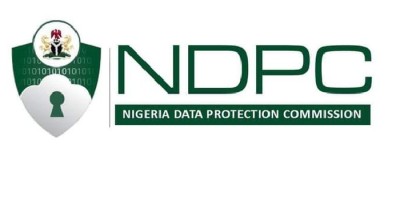- Home
- Grey Matter
- Regulatory and Supervisory Guidelines for Bureau De Change Operations in Nigeria 2024
Regulatory and Supervisory Guidelines for Bureau De Change Operations in Nigeria 2024
Posted on Tue 25 Jun 2024
- Download Resource
Introduction
On May 22, 2024, in a bid to reform and sanitize Bureau De Change operations in Nigeria, the Central Bank of Nigeria (“CBN”) released the new “Regulatory and Supervisory Guidelines for Bureau De Change Operations in Nigeria” (the new 2024 Guidelines/ the new Guidelines). The new 2024 Guidelines are issued pursuant to section 56 of the Banks and Other Financial Institutions Act (BOFIA) 2020 and supersede the 2015 Revised Operational Guidelines for Bureau De Change in Nigeria and any other circular or guidelines on BDCs issued by the CBN. With these new Guidelines, it is clear that the CBN is poised at closely regulating and monitoring the FX sector, especially with the infusion of more elaborate corporate governance requirements and information technology (IT) integration for BDC operators.
In this regulatory update, we highlight some of the key developments in the new Guidelines and their significance.
· Notable Developments with the New Guidelines
1. New categories of Licenses:
The new Guidelines introduce two categories of licenses, viz: Tier 1 and Tier 2 license categories. Accordingly, existing BDCs are required to re-apply for a new license based on their preferred category of license and meet the minimum capital requirements for the license category applied for within six (6) months from the effective date of the Guidelines (June 3, 2024). New applicants for BDC licenses are required to meet the conditions for the grant of license in accordance with the category of BDC chosen.

Tier 1 and Tier 2 license categories
Tier 1 BDC: can operate in any state of the federation and the FCT; can establish branches and appoint franchisees in any state and the FCT, subject to the written approval of the CBN; shall maintain a minimum distance of 1 km between its branches, its branch and a franchise, and between its franchises; and exercise oversight over its franchises. All franchises shall adopt their franchisor’s name, logo, branding, technology platform and regulatory rendition.
Tier 2 BDC: permitted to operate only in one state of the federation; are allowed to establish 5 branches in its state of operation, subject to the written consent of the CBN; are required to maintain a minimum of 1 km distance between its branches; and are not allowed to appoint franchises.

2. Recapitalization/financial requirements.
Tier 1 BDCs are required to have a minimum capital of N2 billion lodged with the CBN; and to pay N1 million non-refundable application fees and N5 million as non-refundable license fees. Tier 2 BDCs are required to have a minimum capital requirement of N500 million; and to pay N250,000 non-refundable application fees and N2 million as non-refundable license fees.
3. Revised Permissible/Non-permissible activities.
The Guidelines also expand the scope of non-permissible activities for BDC operators from 7 items as in the former 2015 Guidelines to a staggering 23 items in the new 2024 Guidelines, notable of which includes; dealing in cryptocurrencies and other virtual assets, dealing in gold and other precious minerals, forwards, futures, options, derivatives and speculative transactions, among others.
4. Procedure for application/grant of license
Under the former 2015 Guidelines, there were two stages of application for a BDC licence, viz: the approval in principle (AIP) stage and the final license stage. However, under the new Guidelines, in addition to the AIP stage, the final licence stage now consists of two (2) sub-stages, i.e. the grant of a provisional approval and subsequently, a final license. In the new Guidelines, a key requirement for a BDC operator to meet before the grant of a final license is the integration of its IT infrastructure with that of the CBN. IT Integration covers connectivity with CBN’s extranet gateway (virtual private network) and relevant systems such as the returns rendition system, Financial Institutions Foreign Exchange Reporting System (FIFX), Financial Analysis (FinA), Centralised AML/CFT/CPF Rendition Platform (CARP), TRMS, Tax Identification Number Verification Portal of Federal Inland Revenue Service (FIRS) and any other application that the CBN may deploy. Following the grant of an AIP, when relevant conditions as stated in the new Guidelines have been met, a Provisional Approval will be granted to commence the aforementioned IT integration. The significance of the IT integration as a prerequisite for the grant of final license is that; it creates a digital footprint – a transparent system where regulators can jointly monitor BDC activities – and ensures better audits. It is only upon conclusion of the IT integration and the satisfaction of other conditions stated in the new Guidelines, that a final license may be granted by the CBN.
5. Corporate Governance requirements
The new 2024 Guidelines introduce a more structured corporate governance requirement for BDCs by introducing independent non-executive directors (INEDs), modes of their appointment and resignation, separation of the office of an Executive Director (ED) from the Chief Executive Officer (CEO) among other developments.
Unlike the minimum number of three (3) and a maximum of five (5) directors for Board of Directors (BOD) of BDCs in the former 2015 Guidelines, the new Guidelines have increased the number of directors to a minimum of five (5) and maximum of seven (7) for Tier 1 BDCs, and a minimum of three (3) and maximum of five (5) for Tier 2 BDCs, in line with the new categories of licenses introduced under the new Guidelines. A Tier 1 BDC is also required to have an ED other than the MD/CEO, while a Tier 2 BDC may have an ED apart from the MD/CEO. Of notable importance is the introduction of gender balance in the new Guidelines, as it is now a requirement that no BOD of a BDC shall comprise of only one gender.

Conclusion
The new 2024 Guidelines is indeed laudable, as it allows for better regulation and transparency, especially with the introduction of new corporate governance requirements, stratification of BDCs into different categories of licenses, and IT integration. Furthermore, the new Guidelines are prone to cause some changes in the corporate structure of BDCs, with new filings and documentation requirements at relevant agencies, such as the Corporate Affairs Commission (CAC), CBN, FIRS, the Nigerian Financial Intelligence Unit, amongst others. Lastly, the new two-step process for the grant of a final license allows for an integrated and synchronized regulatory ecosystem for BDC operations.
Disclaimer: This newsletter is only intended to provide general information on the subject matter and does not by itself create a client/attorney relationship between readers and our Law Firm or serve as legal advice. We are available to provide specialist legal advice on the readers’ specific circumstances when they arise.
Banwo & Ighodalo possesses the requisite expertise and competence to provide legal advisory services on banking, financial and foreign exchange regulations.
For further enquiries, kindly reach out to your usual B&I contact or any of the contact persons below:














